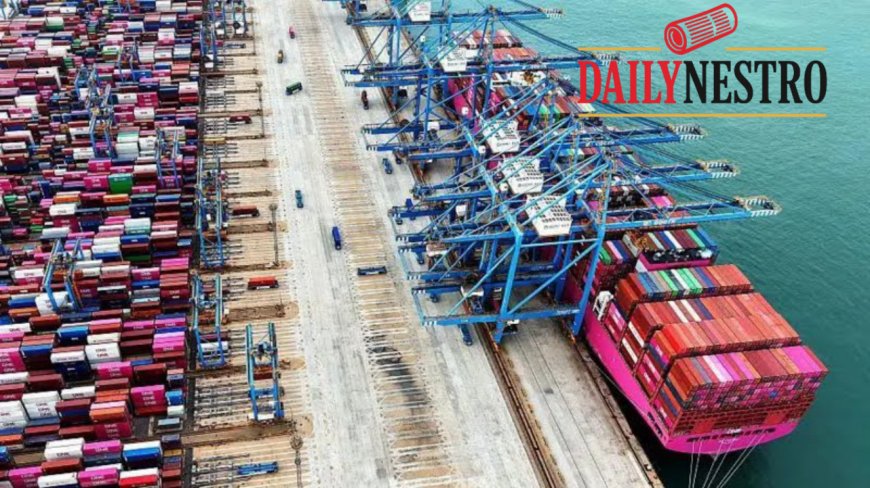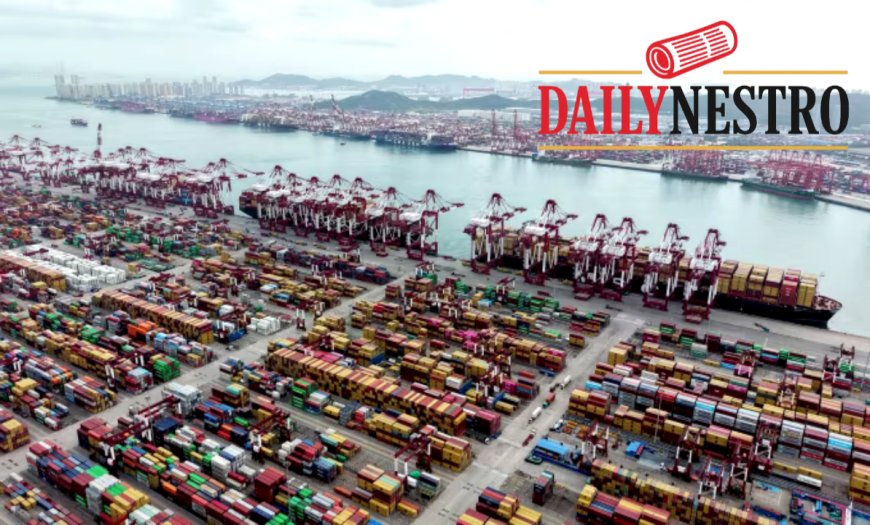Trade War Tensions Rise as China Vows Retaliation Against Trump’s 100% Tariff Plan
China has warned the U.S. of strong countermeasures if President Trump enforces a 100% tariff on Chinese imports, escalating global trade tensions.

China Warns US of Countermeasures if Trump Does Not Retract 100% Tariff
Threat In a rapidly escalating trade dispute, China has issued a stern warning to the United States, stating that it will implement countermeasures if President Donald Trump does not withdraw his threat to impose a 100% tariff on Chinese imports.
This development comes amid ongoing tensions between the world's two largest economies, highlighting the fragile state of global trade relations as of October 12, 2025.Background on the Tariff ThreatThe roots of this conflict trace back to longstanding trade imbalances and disputes over intellectual property, technology transfers, and market access. President Trump, who has long advocated for aggressive trade policies to protect American industries, recently escalated his rhetoric by threatening to slap an additional 100% tariff on a wide range of Chinese goods. This move is seen as a response to China's recent restrictions on rare earth exports, which are critical for industries like electronics, renewable energy, and defense.Rare earth elements, of which China controls a significant portion of global supply, have become a flashpoint in the bilateral relationship.Trump's threat, if enacted, would effectively double existing tariffs on many Chinese products, potentially raising costs for American consumers and businesses reliant on imported components. Analysts suggest this could lead to higher prices for everyday items like smartphones, electric vehicles, and solar panels. The president's strategy appears aimed at pressuring Beijing to make concessions in trade negotiations, but it has instead drawn a firm rebuke from Chinese officials.China's Response and StanceBeijing has accused the U.S. of employing "double standards" in trade practices and has vowed not to back down.

In an official statement, China's Ministry of Commerce urged the U.S. to resolve differences through dialogue rather than threats, emphasizing that unilateral actions undermine mutual trust.
A spokesperson for the ministry stated, "China is not afraid of pressure and will take necessary countermeasures to safeguard its legitimate rights and interests."This isn't the first time China has signaled readiness for retaliation. During previous phases of the U.S.-China trade war, Beijing responded to American tariffs with its own levies on U.S. agricultural products, automobiles, and other exports. Experts predict that any new countermeasures could include further restrictions on rare earths, increased tariffs on American goods, or even limitations on U.S. companies operating in China Such actions could exacerbate supply chain disruptions already felt globally due to geopolitical tensions.Chinese state media has amplified this message, portraying Trump's threats as bullying tactics that ignore the interconnected nature of modern economies.
Editorials in outlets like the People's Daily have called for calm negotiations, arguing that both sides stand to lose from a prolonged standoff.Implications for Global Trade and EconomyThe potential fallout from this tariff escalation is significant. Economists warn that a full-blown trade war could shave points off global GDP growth, with ripple effects on stock markets, commodity prices, and international supply chains. For the U.S., higher tariffs might boost domestic manufacturing in the short term but could lead to inflation and job losses in import-dependent sectors. China, meanwhile, faces challenges in diversifying its export markets away from the U.S., though it has made strides in strengthening ties with Europe, Africa, and Southeast Asia.Business leaders on both sides are expressing concern. American companies like Apple and Tesla, which rely heavily on Chinese manufacturing, could see profit margins squeezed.
In China, exporters in tech and consumer goods industries are bracing for impact, potentially accelerating the push toward self-reliance in key technologies.On the diplomatic front, this spat occurs against a backdrop of broader U.S.-China rivalry, including issues like Taiwan, the South China Sea, and technology standards. Observers note that while tariffs grab headlines, they are part of a larger strategic competition that could define international relations for decades.What Happens Next?As negotiations stall, the ball is now in Washington's court. Will President Trump walk back his threat to avoid mutual economic harm, or will he double down in pursuit of his "America First" agenda? China has made it clear that it prefers talks over tariffs but is prepared to respond in kind if provoked.
For global watchers, this episode underscores the need for multilateral frameworks to address trade disputes. Organizations like the World Trade Organization (WTO) could play a role in mediating, though their effectiveness has been hampered by ongoing reforms.In conclusion, the U.S.-China trade tensions serve as a reminder of how interconnected our world is. While tariffs might protect certain industries, they often come at a cost to consumers and the broader economy. As both nations navigate this high-stakes game, the hope is for de-escalation through constructive dialogue. Stay tuned for updates as this story develops.
Source:BBC news, guardian news,CNN







